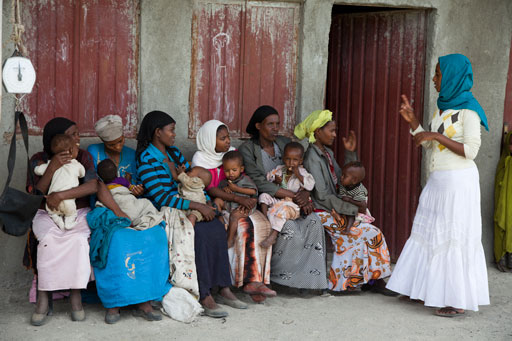12.5.2 Challenges of networks for advocacy
Supporting local and national networks to influence those who create policies, laws, regulations and budgets may present significant challenges. Belonging to a network can take up a lot of time and many of the activities involved are complex and difficult to achieve. These challenging activities could include:
- training communities (Figure 12.5), community leaders, other network members and local water boards and associations on their rights and responsibilities regarding urban WASH laws, budgets and policies
- educating national and local political leaders on urban WASH
- strengthening policy dialogues between communities, civil society groups and decision makers
- urging increased funding for government-funded urban WASH programmes
- supporting high-quality urban WASH messaging in local news media etc. may require more time and resources.

All of these advocacy initiatives are likely to require considerable time and resources, but influencing decision makers and strengthening their political will is essential for making any large-scale change.
Try to identify an important advocacy initiative in your local context. In relation to this advocacy initiative:
What activities would you put in your advocacy plan to ensure urban WASH services are better promoted and resourced in your locality or organisation? For each activity, consider who should undertake it, how it should be undertaken, what resources will be required and what your role will be.
You will have your own answer but you may have mentioned activities such as convening meetings, public speaking, messages through local media, and consultations with the user community. You might also have mentioned developing a local network. This might involve the municipal government, youth groups (Figure 12.6), and women’s groups, non-governmental agencies and local traders.

Whatever the advocacy initiative you are considering, networking would facilitate inter-sectoral communications between all those involved. This is important for the participation processes and will always be likely to lead to more effective planning and implementation.
12.5.1 Advantages of networks for advocacy
